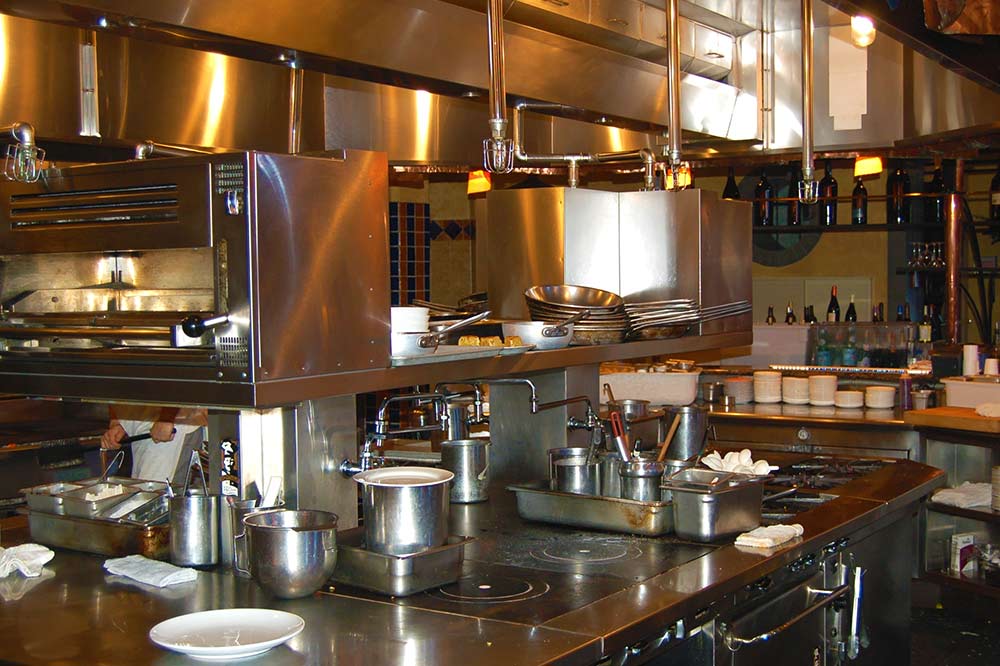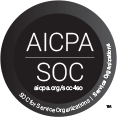Cleaning is one of those necessary frustrations about working in a commercial kitchen. After all, chefs and cooks love to focus on making the food, so it’s tempting to shirk certain cleaning duties and only handle the creative side of preparing delicious dishes.
But keeping a clean kitchen is no joke. Besides needing to maintain standards for the health inspector in order to keep your doors open, keeping your restaurant kitchen clean means avoiding mice infestations, restaurant fires, and cases of foodborne illness.
A key element to keeping your kitchen clean is to follow each equipment manufacturer’s instructions for cleaning, keep track of their warranties, and know what aspects of the maintenance should be left to professionals. Even a boss passionate about sanitation can be overwhelmed by the amount of cleaning that a kitchen staff needs to stay on top of. It’s important to understand when cleaning tasks need to be done and how often in order to properly incorporate them into the heart of your business.
Here are our best recommendations for you.
Once a Year
Tasks that only have to be done on a yearly basis include cleaning things like the pilot lights on all gas-run equipment, such as ovens and grills, so that they continue to light properly. Be careful about following the specific cleaning instructions from your equipment’s manufacturer, since they can vary by brand and model.
If you have any hesitation on safely cleaning it yourself, you might want to hire a professional to clean it instead. It’s also important to have your fire suppression system and your fire extinguisher professionally inspected at least once a year to ensure they’re both ready to use in an emergency.
Once Every Six Months
You’ll want your exhaust hoods professionally cleaned at least twice a year (although it might be more frequent – we recommend following the manufacturer’s recommended schedule for your particular hoods) to avoid the greasy hoods becoming a fire hazard. Yes, while many of these cleaning tasks can be done by your staff, exhaust hoods get very greasy over a period of months.
Taking care of the job yourself or with your crew will not only be time consuming, but could also spread the grease around the remainder of your kitchen in the process of removing it from the hoods. It’s a sincerely messy job. Hiring professional cleaners (especially ones who specialize in commercial kitchen sanitizing) to come in and get the job done is highly recommended.

Once a Month
Mark a day or week on your calendar every month to make sure no grease has built up behind the ovens, ranges, or fryers. Grease build up is a fire hazard and the longer you let it build, the more difficult it is to remove.
Freezers and ice machines should both be emptied and cleaned monthly to avoid heavy frosting and bacteria issues. Washing the walls and ceiling of the kitchen is a must, as is making sure your dry storage is wiped down (flour, crumbs, and sugar left behind can attract pests).
Besides cleaning, other general maintenance should be done on a monthly basis. Calibrate your free-standing, oven, and freezer thermometers to ensure food safety standards continue to be met. Sharpening the slicers on a regular basis will not only ensure quality presentation of your dishes, but also help maintain portion control and lower waste potential.
And make sure to double check that your first aid kit is stocked up. The midst of an emergency is the wrong time to realize you’re short on bandages or supplies to mitigate severe allergic reactions.
Once a Week
For weekly cleaning, empty, wash, and sanitize your walk-in coolers, delime your faucets and sinks, and give your ovens a good cleaning inside and out (while following the oven manufacturer’s cleaning instructions to avoid damaging them). Keeping your ovens clean is crucial to ensure weird inset flavors (or even burnt residue) from past foods don’t get into what you’re cooking.
If you have any cast iron skillets, you should also set up a weekly schedule for oiling them to ensure their upkeep. Remember, iron skillets should never be washed like regular pans because they’ll rust. Set a weekly time to sharpen all of the kitchen knives — although cooks should hone their knives with their honing steel before each shift and as needed.
Once a Day
Daily cleaning tasks include changing the foil linings on your grill, range, and flattop to avoid build-up of run-off grease and food particles. Run your hood filters through the dishwasher a well. You should disinfect prep surfaces, but clean other equipment like your grill, range, flattop, and fryer (including underneath and behind them) thoroughly.
Wash the can opener and meat slicers if they’ve been used that day, drying them carefully — maybe even polishing — so as to avoid rust. You’ll also need to mop the floors, wipe down the walls if you see any food debris or splashes, and disinfect the trash cans and surrounding areas of your kitchen.

At the End of Each Shift
Certain tasks should be shared by every shift to ensure the next shift has a clean kitchen. You want to leave the kitchen the way you’d want it left by the shift before yours. Wash and sanitize all surfaces, including the cutting boards, the reach-in, the line, and all prep tables. The outsides of your fryers should be cleaned and the grill should be brushed. Your steam table should be emptied and cleaned. Any bins in your reach-in cooler should be securely covered.
Other shift cleaning tasks include:
- emptying sanitizing buckets
- putting all cleaning rags in dirty laundry
- placing all kitchen aprons and chefs’ coats in their own spot in the laundry
- washing floor and floor mats in the kitchen
- washing the floors of the walk-in refrigerator
Throughout the Shift Whenever Needed
There are always going to be things that your kitchen staff should be doing throughout their time in the kitchen. Switching cutting boards and wiping down the line and prep areas will help avoid cross-contamination, as will changing out the sanitizing buckets and cleaning rags periodically throughout the night.
Cooks working the grill should also be brushing their station in between cooking red meat, fish, and poultry to avoid having flavors (and uncooked particles) contaminate the next dish. Wipe down the meat and cheese slicer after each use. Empty the kitchen trash cans as they fill up.
The night can get very busy for your kitchen, but remembering all these tasks is an important part in keeping up your restaurant’s own sanitation standards, maintaining your health and safety certification, and delivering the best food possible to your loyal customers.
Professional kitchen cleaning is just one of many things restaurant owners look for extra cash to accomplish. Explore our list of things a merchant cash advance can help with:






